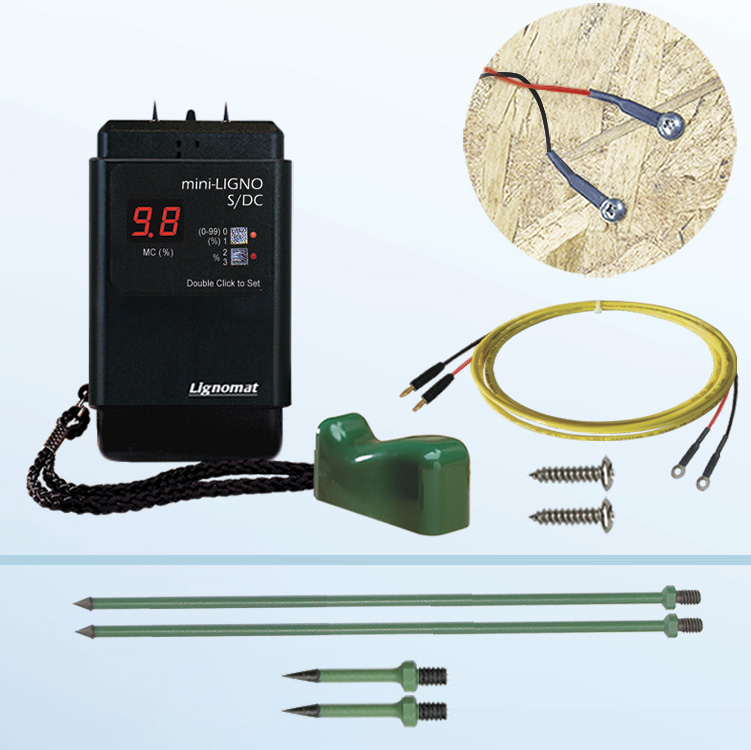The Science Behind Moisture Meters: Just How They Function and Why They're Crucial
The Science Behind Moisture Meters: Just How They Function and Why They're Crucial
Blog Article
The Ultimate Guide to Dampness Meters: A Comprehensive Introduction and How They Can Save You Money
Moisture meters serve as essential devices in spotting and monitoring moisture material in products, aiding in avoiding pricey damages and making certain the top quality of products. Comprehending the subtleties of various types of moisture meters, their applications, and the possible cost-saving advantages they offer can be a game-changer for organizations and professionals alike.
Types of Dampness Meters
Various sorts of wetness meters are offered for different applications in various industries. One usual type is the pin-type moisture meter, which determines the electrical resistance between two pins placed right into a product. This kind appropriates for timber, drywall, and various other structure products. Pinless dampness meters, on the various other hand, usage electro-magnetic sensing unit plates to check a bigger location without creating damages to the product's surface area. Moisture Meter. These meters are optimal for swiftly assessing moisture levels in large areas such as walls and floors.

Infrared wetness meters measure the thermal residential or commercial properties of a product to identify its dampness content non-invasively, making them valuable for applications where pin or pinless meters may not be appropriate. Recognizing the different types of dampness meters available can assist sectors choose the most proper tool for their details moisture measurement demands.

Advantages of Using Dampness Meters
Wetness meters supply vital advantages in accurately assessing and monitoring moisture degrees in varied materials and environments. One of the primary advantages of utilizing dampness meters is the avoidance of prospective damage created by excess dampness.
In addition, utilizing dampness meters can bring about increased power effectiveness. By identifying locations with high wetness degrees, such as leaks or inadequate insulation, modifications can be made to improve power preservation and decrease energy prices. In farming settings, dampness meters play a vital function in optimizing plant yields by enabling farmers to monitor dirt dampness degrees and make notified irrigation choices. In general, the advantages of utilizing dampness meters cover across numerous industries, supplying cost-efficient solutions and promoting better quality assurance techniques.
Exactly How to Pick the Right Dampness Meter
When picking a wetness meter, it's necessary to ensure that the meter is suitable for the details product you will be screening. Different products have differing electrical properties that can influence wetness readings, so picking a meter developed for your material is important for precise results. By carefully reviewing these aspects, you can select a wetness meter that fulfills your requirements and provides exact moisture dimensions for your tasks.
Appropriate Techniques for Wetness Meter Usage

Expense Cost Savings With Wetness Meter Applications
Exactly how can the calculated use of wetness meters cause considerable cost savings throughout different industries? Moisture meters play an important function in cost financial savings by protecting against possible damage and guaranteeing quality assurance in different industries. In the agriculture sector, wetness meters aid in determining the optimum time for gathering crops, stopping over-drying or excess moisture that can influence the final product's top quality. This accurate monitoring aids farmers prevent unnecessary losses and optimize their yield.
Likewise, in construction, wetness meters help stop costly damages by spotting dampness levels in structure materials, such as timber or concrete, which can result in architectural issues if not resolved quickly. By recognizing trouble areas beforehand, professionals can take rehabilitative measures to prevent comprehensive repair services or replacements, eventually saving time and money.
Moreover, in the food handling industry, moisture meters are necessary for monitoring product high quality and making certain compliance with safety guidelines. By properly gauging moisture content in food, makers can avoid wasting, keep quality, and lower waste, causing significant cost savings. In general, the critical application of moisture meters is an important investment that can result in considerable expense reductions and enhanced efficiency across various sectors.
Verdict
To conclude, wetness meters are valuable tools for determining and finding wetness levels in various materials. By making use of the appropriate dampness meter and adhering to proper methods, users can successfully prevent pricey problems brought on by excess dampness. Buying a quality dampness meter can bring about considerable cost savings in visit this site the future by determining potential problems early and enabling prompt removal. Eventually, moisture meters are crucial tools for preserving the integrity and long life of materials and structures.
Wetness meters offer as crucial tools in identifying and keeping an eye on moisture web content in materials, assisting in protecting against expensive problems and ensuring the high quality of items. Infrared wetness meters gauge the thermal buildings of a material to establish its dampness content non-invasively, making them valuable for applications where pin or pinless meters might not be suitable.Wetness meters supply indispensable benefits in properly assessing and keeping an eye on moisture levels in page varied products and settings. In farming setups, wetness meters play a vital duty in optimizing crop yields by allowing farmers to keep an eye on dirt dampness levels and make educated watering choices.In verdict, dampness meters are valuable tools for spotting and determining dampness degrees in numerous products.
Report this page